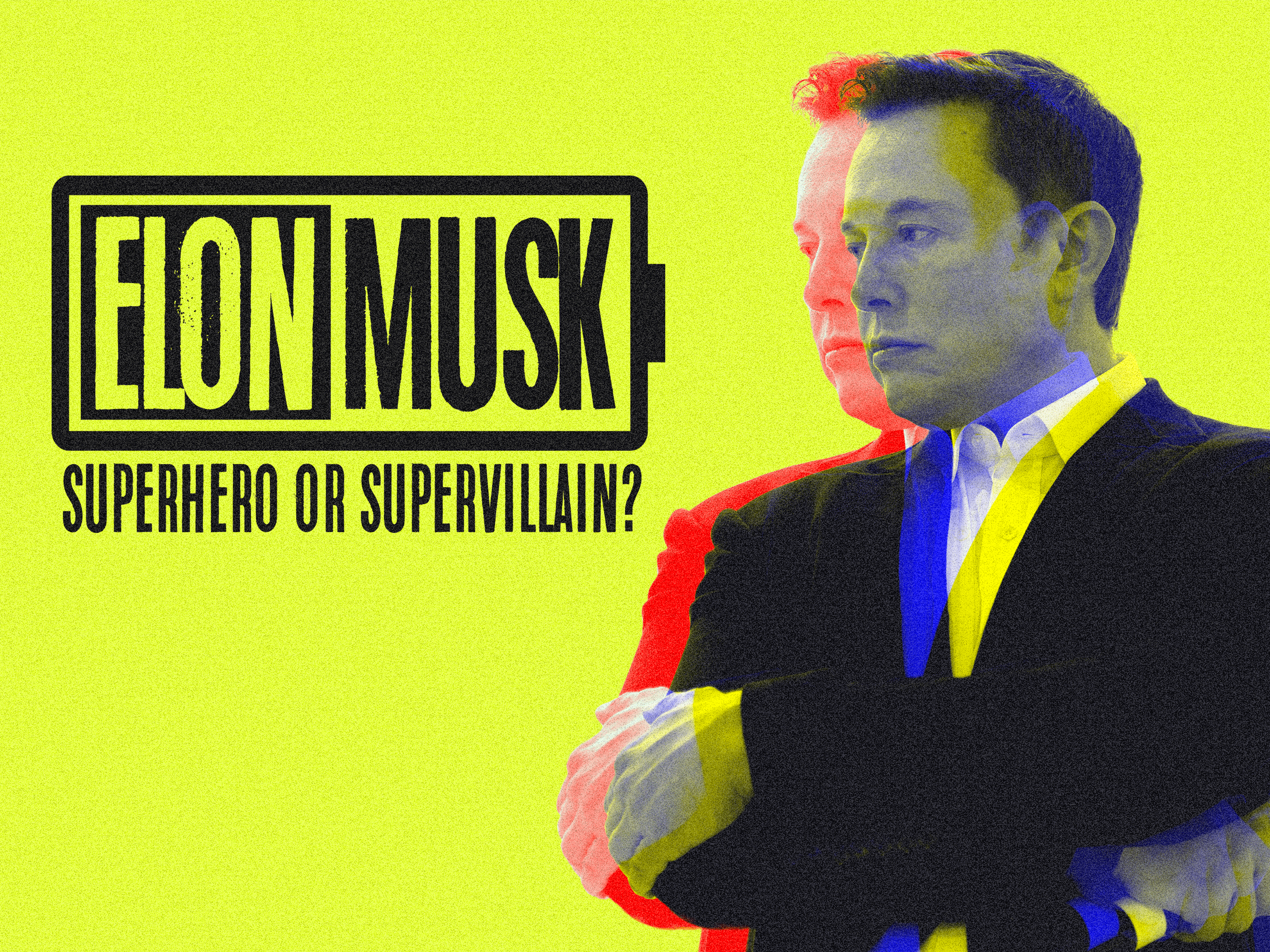Elon Musk: The Hero or Villain of Cryptocurrencies?
Elon Musk, the enigmatic billionaire known for his leadership at Tesla and SpaceX, has become one of the most influential figures in the world of cryptocurrencies. His involvement in the crypto space has been both celebrated and criticized, leaving many to question whether Musk’s influence on the market is ultimately beneficial or harmful for investors. Whether he’s publicly endorsing Bitcoin, praising Dogecoin, or criticizing Bitcoin’s environmental impact, Musk has a unique ability to move markets with his words and actions. But does this influence help or hurt the cryptocurrency ecosystem? In this article, we’ll explore both sides of the debate to understand whether Elon Musk is a hero or a villain for the cryptocurrency market.
The Case for Musk as a Hero

1. Mainstreaming Cryptocurrencies
One of the most significant ways Musk has contributed to the cryptocurrency market is by bringing it into the mainstream. His public endorsement of Bitcoin and Dogecoin has captured the attention of retail investors, financial institutions, and even governments, forcing them to take a closer look at digital currencies. When Tesla announced in early 2021 that it had purchased $1.5 billion worth of Bitcoin and planned to accept it as payment for vehicles, it sent a powerful message to the world: cryptocurrencies were here to stay.
Musk’s involvement with Dogecoin, a cryptocurrency originally created as a joke, has similarly elevated its status. His playful tweets and memes have transformed Dogecoin from a niche digital asset into a widely recognized cryptocurrency. The viral nature of Musk’s endorsements has led to a surge in interest from both new investors and seasoned traders, further cementing cryptocurrencies as a legitimate financial asset class.
2. Driving Institutional Investment
Musk’s influence has also played a role in encouraging institutional investment in cryptocurrencies. By publicly backing Bitcoin and showcasing its potential as a store of value, he has helped to spark greater interest among institutional players. His company, Tesla, is one of the first major corporations to incorporate Bitcoin into its treasury reserves, setting an example for others to follow. This move has prompted other large companies, such as MicroStrategy and Square, to also invest in Bitcoin, creating a ripple effect in the financial world.
Furthermore, Musk’s promotion of cryptocurrencies like Dogecoin and his involvement in the broader crypto conversation have inspired a wave of innovation in the decentralized finance (DeFi) space. Many developers are now exploring new ways to build upon blockchain technology, with Musk’s attention helping to fuel these efforts. As a result, Musk’s influence has contributed to the growth and evolution of the cryptocurrency market, pushing it toward greater adoption and technological advancement.
3. Raising Awareness About Financial Freedom
Musk’s outspoken support for cryptocurrencies has also been a catalyst for discussions about financial freedom and the decentralization of money. He frequently emphasizes the importance of removing intermediaries in financial transactions, which aligns with the core principles of blockchain technology. By advocating for cryptocurrencies, Musk has helped spread the message that digital currencies can empower individuals to take control of their own financial futures, without relying on traditional banks or centralized authorities.
In countries with unstable currencies or political unrest, cryptocurrencies can offer an alternative store of value and a means of conducting transactions outside the traditional financial system. Musk’s support for crypto can be seen as an endorsement of these ideals, making him a hero for those who believe in the potential for digital currencies to create a more inclusive and equitable financial system.
The Case for Musk as a Villain
1. Creating Unnecessary Volatility
While Musk’s influence has undeniably helped bring cryptocurrencies into the mainstream, it has also contributed to significant volatility in the market. Musk’s tweets, in particular, have caused wild price swings for cryptocurrencies like Bitcoin and Dogecoin, leaving investors scrambling to make decisions based on his latest comments. For example, Musk’s tweet in May 2021, in which he announced that Tesla would no longer accept Bitcoin as payment due to concerns about its environmental impact, caused Bitcoin’s price to drop by nearly 10% in a matter of hours.
Such volatility can be devastating for investors, particularly those who are new to the space or lack the experience to navigate these fluctuations. While the crypto market is known for its ups and downs, Musk’s tweets often amplify these movements, making it difficult for investors to trust the stability of the market. This has led some to argue that Musk’s actions are reckless, as they can cause significant financial harm to individuals who are overly reliant on his statements.
2. Market Manipulation Allegations
Another criticism of Musk’s involvement in the cryptocurrency market is the potential for market manipulation. Musk’s tweets and public statements often have a direct and immediate impact on the prices of cryptocurrencies. This level of influence has raised concerns about the ethical implications of his actions. Some have even accused him of using his social media presence to manipulate the market for his own gain or for the amusement of his followers.
For instance, Musk’s tweets about Dogecoin have caused dramatic price surges, followed by sharp declines. Critics argue that this behavior is irresponsible, as it can encourage speculative trading and create an environment where prices are driven more by hype than by fundamental value. If Musk is using his platform to manipulate prices, it could lead to a market that is driven by his whims, rather than by sound investment principles.
3. Undermining Trust in the Market
Musk’s frequent changes in opinion and contradictory statements about cryptocurrencies have led some to question his credibility as a leader in the space. For example, after initially praising Bitcoin for its potential, Musk turned against it when he cited environmental concerns related to Bitcoin mining. This sudden shift caused confusion among investors, many of whom had followed Musk’s lead only to see the market react negatively to his comments.
This lack of consistency can undermine trust in the cryptocurrency market as a whole, particularly for those who are just beginning to explore the world of digital assets. Musk’s contradictory actions could give the impression that the market is unstable or unreliable, deterring potential investors who might otherwise be interested in exploring the opportunities that cryptocurrencies have to offer.
Conclusion: A Double-Edged Sword
Elon Musk’s influence on the cryptocurrency market is undoubtedly powerful, and whether he is a hero or villain largely depends on one’s perspective. On one hand, Musk has helped bring cryptocurrencies into the mainstream, driving institutional investment, raising awareness about financial freedom, and fostering innovation in the crypto space. His support for Bitcoin and Dogecoin has undoubtedly contributed to the growth and evolution of the market.
On the other hand, Musk’s actions have also created significant volatility, raised concerns about market manipulation, and undermined trust in the market. His tweets often cause drastic price swings, and his ever-changing opinions can leave investors in a state of uncertainty.
Ultimately, whether Musk is a hero or villain in the world of cryptocurrencies may come down to the type of investor you are. For those who embrace the excitement of the market and see Musk’s influence as a driver of innovation, he may appear as a hero. For others who value stability and predictability, Musk’s involvement may seem like a dangerous game that could lead to financial losses.
As the cryptocurrency market continues to evolve, one thing is certain: Elon Musk’s role in shaping its future is far from over. Whether his legacy will be remembered as that of a hero or a villain remains to be seen.
